Crazy beauty techniques from the past that make the hair stand on end
By Pictolic https://pictolic.com/article/crazy-beauty-techniques-from-the-past-that-make-the-hair-stand-on-end1.htmlOver time, ideas about female beauty changed, and sometimes the words "beauty requires sacrifice" had the most literal meaning. What women did to themselves in order to be considered beautiful, today is capable of shocking. Here are a dozen examples from the past that confirm that you should not chase the changeable fashion and the main thing is still health.
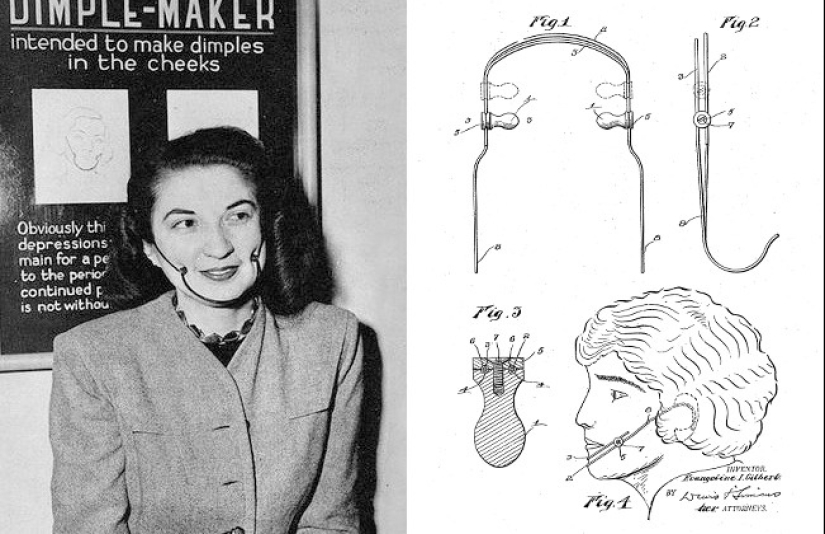
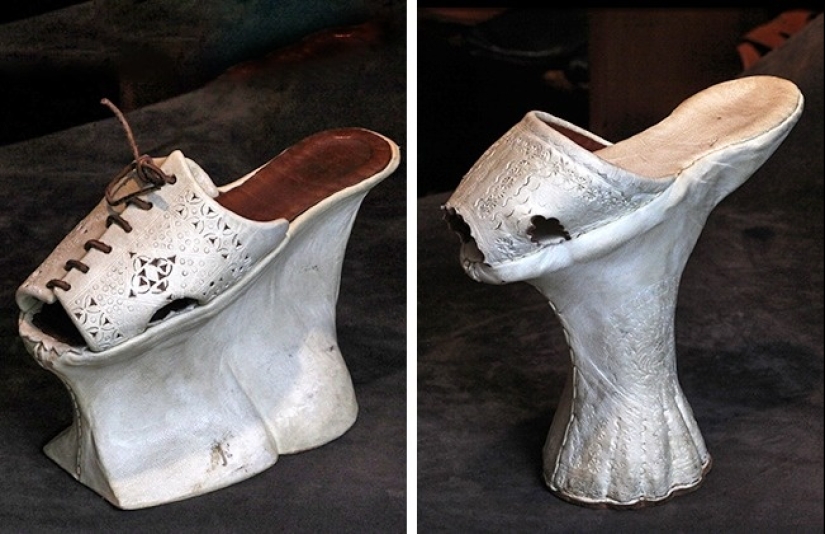
Girls in the XV-XVII centuries had to wear chopins (also zoccoli or pianelle). So they protected their beautiful outfits from the dirt that covered the streets, and demonstrated their high social status. The height of chopins could reach 50 centimeters. It is no wonder that the ladies had to resort to the help of maids, who were always there to support their mistress and not let her lose face in the dirt. Literally.
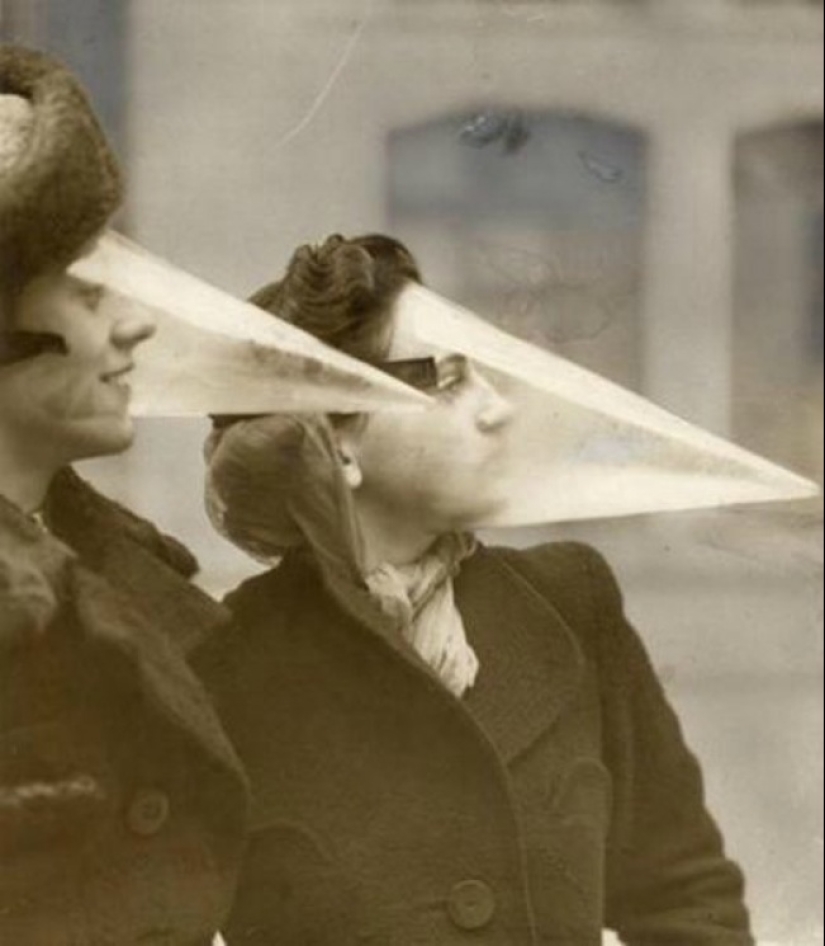
In this way, fashionistas tried to protect makeup from rain and snowfall. The bad thing is that this strange device quickly fogged up from breathing.
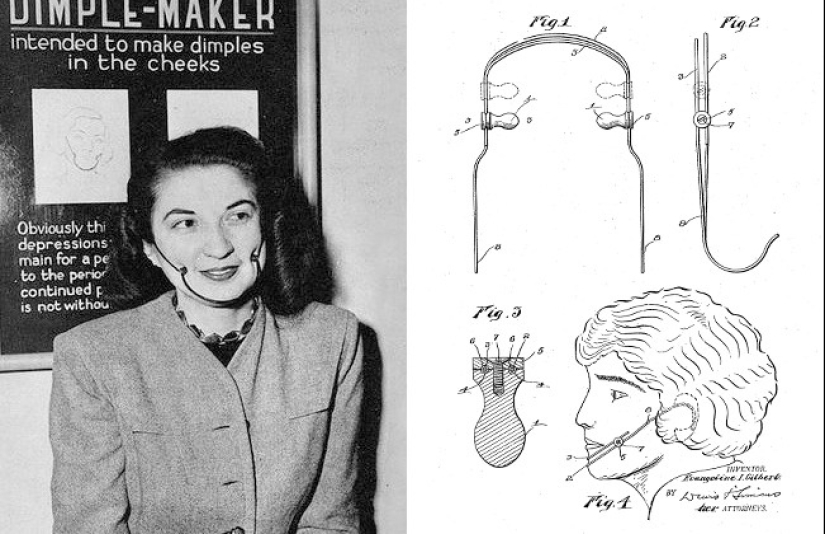
In the XX century there was a time when the femininity of the image was considered insufficient if the girl did not have charming dimples on her cheeks. In 1923, a special device was patented, which, according to the inventors, was able to give beautiful dimples to anyone. The device was put on the face, fixed behind the ears and on the chin, and two protruding rods pressed hard and painfully on the cheeks. After some time of such use, the desired dimples appeared on the face.
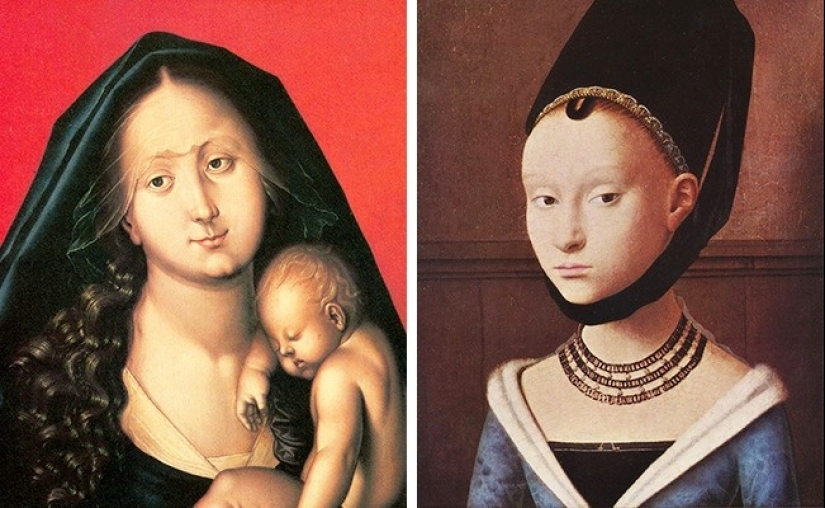
During this period, naturalness was not particularly appreciated, people began to actively use cosmetics, and the female body was raised into a cult. A high rounded forehead was especially fashionable, and the higher the hairline was, the better. Therefore, many women shaved their forehead hair to meet this standard of beauty. In addition, fashionistas certainly got rid of eyelashes by plucking them with tweezers.
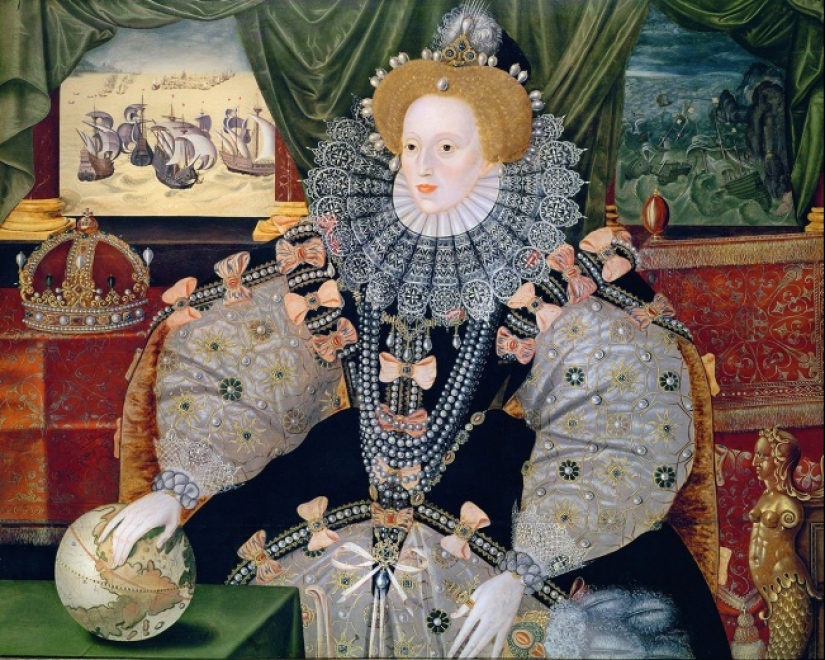
A product with mercury and vinegar was used to whiten the face. The skin did become whiter, but over time it turned yellow, and this process was irreversible. Queen Elizabeth I of England was an ardent fan of bleaching cosmetics. Her face has reached such a degree of whiteness that in history it is remembered as the "mask of youth".
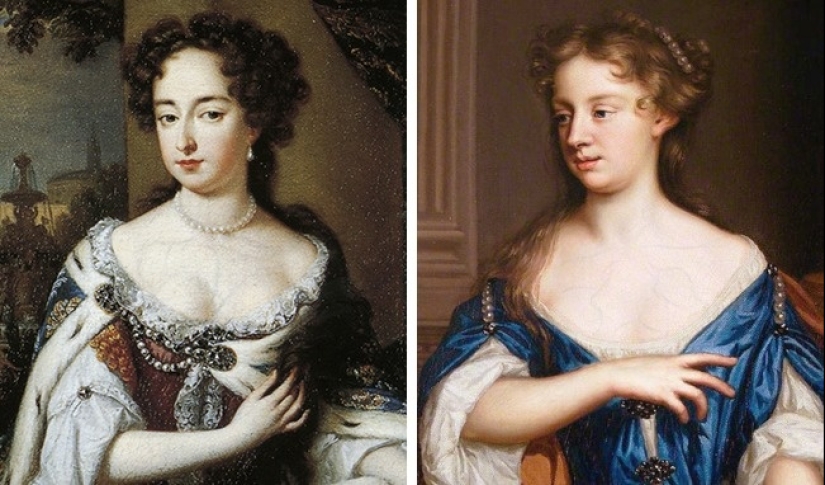
To emphasize their high origin, women used a blue pencil to draw a venous pattern on their neck, chest and shoulders.
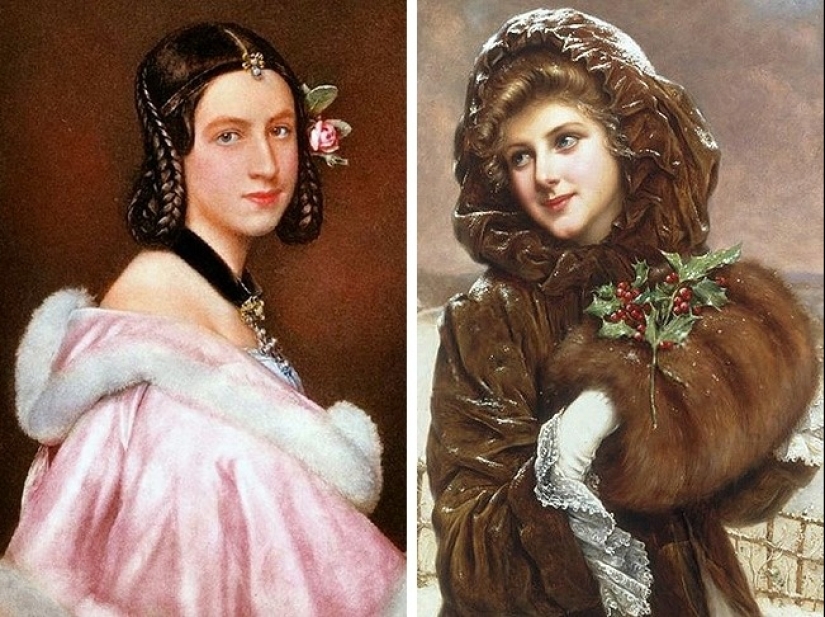
Queen Victoria of England banned women from using cosmetics, but this did not stop them in search of a way out of the situation. Instead of applying lipstick and blush, they pinched their cheeks and bit their lips.
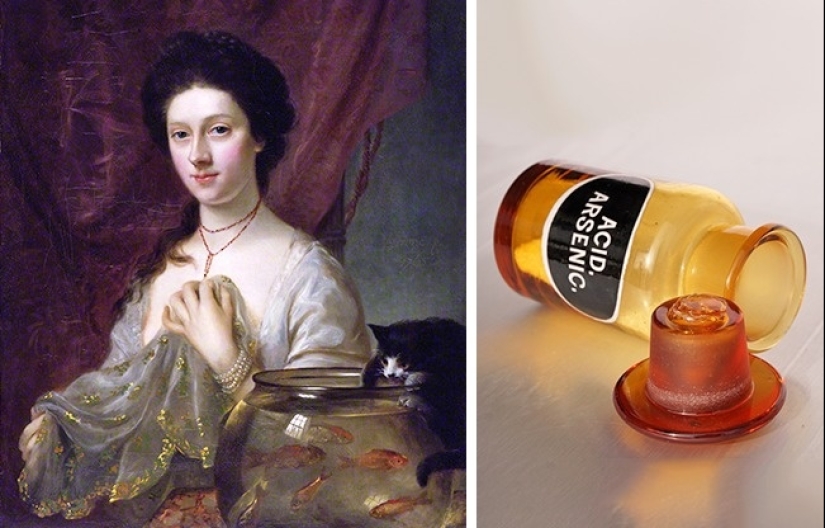
In the XIX century, it was fashionable to use arsenic inside to "give a blooming look to the face, shine to the eyes, and an attractive roundness to the body." Nevertheless, there were side effects: arsenic accumulates in the thyroid gland, which can provoke the formation of goiter and lead to death.
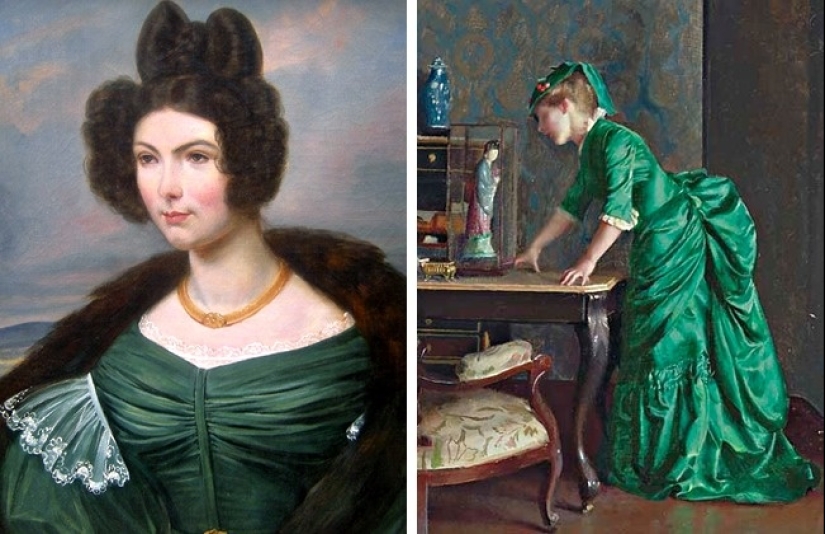
In the Victorian era, a green dye was invented, and the bright fabrics dyed with it became popular among fashionistas. This shade was called "Green Scheele". To achieve it, a mixture of arsenic and copper was used. The poisonous substance gradually killed the one who wore a dress made of fabric dyed with this dye. When in contact with mucous membranes, the paint caused irritation and gradually penetrated through the skin. By the way, the wallpaper was painted with the same dye, so that the green walls in rich houses were fraught with a deadly risk for the owners and their guests.
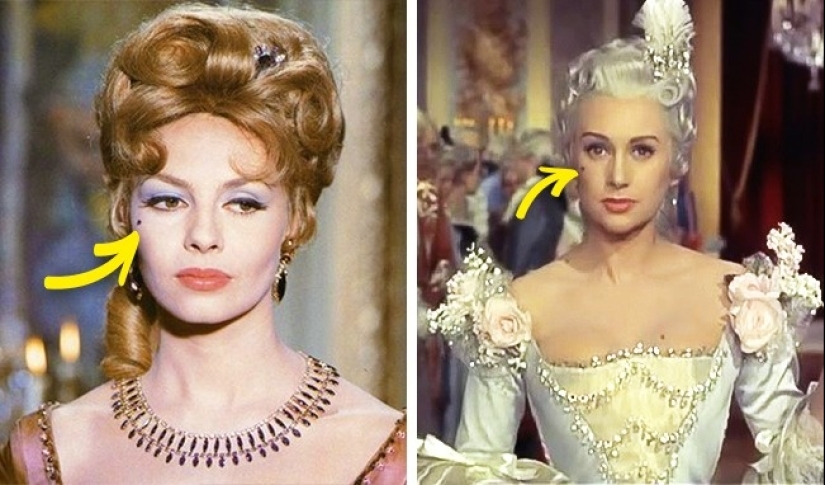
At that time, people used cosmetics without hesitation, and special importance was attached to artificial moles - flies. They have become not only a way to decorate the face, but also a tool for flirting. For example, a fly in the form of a crescent moon meant an invitation to a night date, a cupid fly meant love, a carriage meant consent to a joint escape. The fly above the upper lip meant that the girl was free and open to marriage proposals. If the artificial mole was located on the right cheek, it meant that the woman was already married. Widows wore flies on their left cheek.
Recent articles

Slavery existed in the British American colonies and the United States from 1619 to 1865. Today, this is a difficult topic for ...

The media often describe North Korea as a country completely isolated from the outside world and living by its own rules. Some are ...

"These children are not your" — to such conclusion came the doctors after comparing DNA Lydia Fairchild and her own children. ...